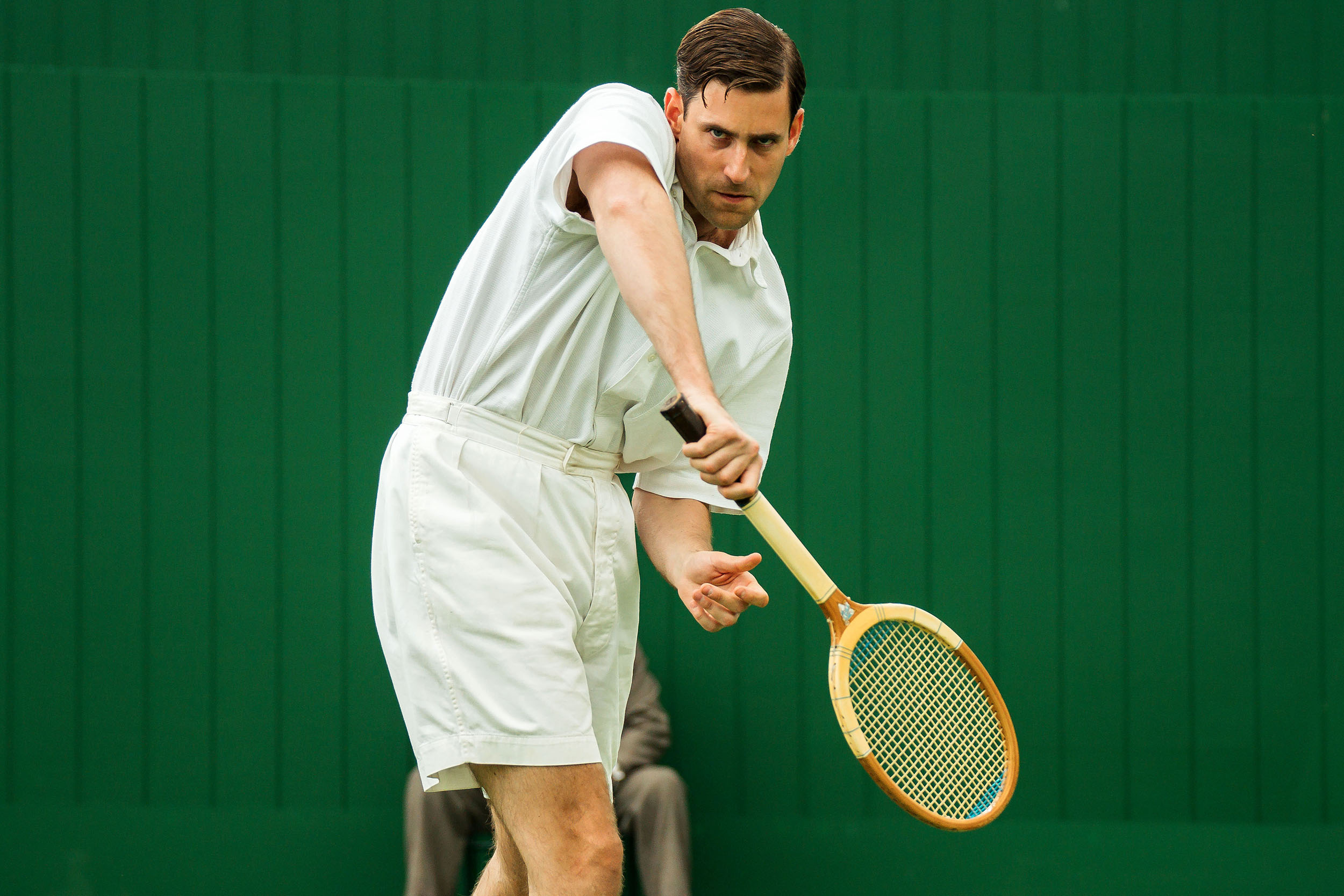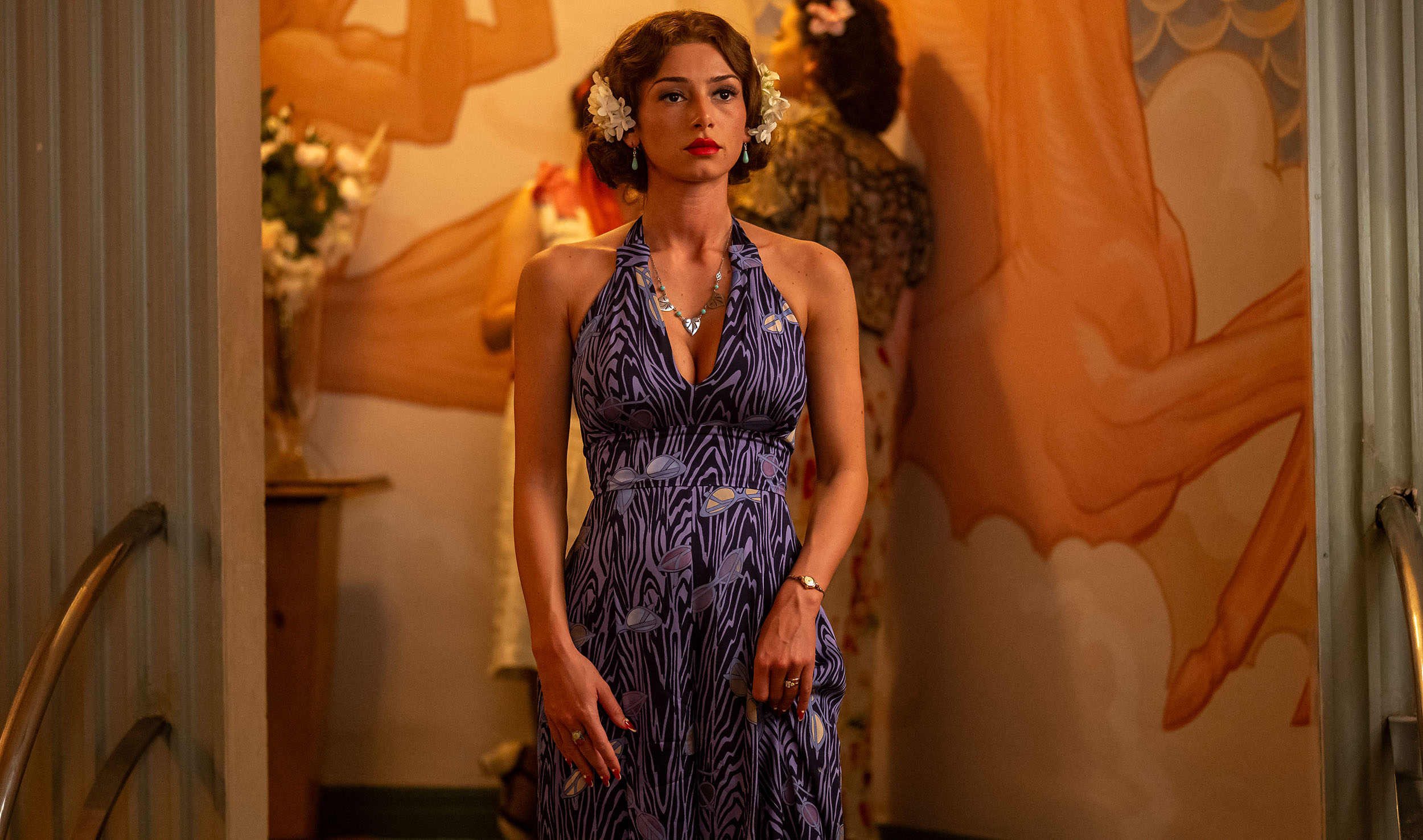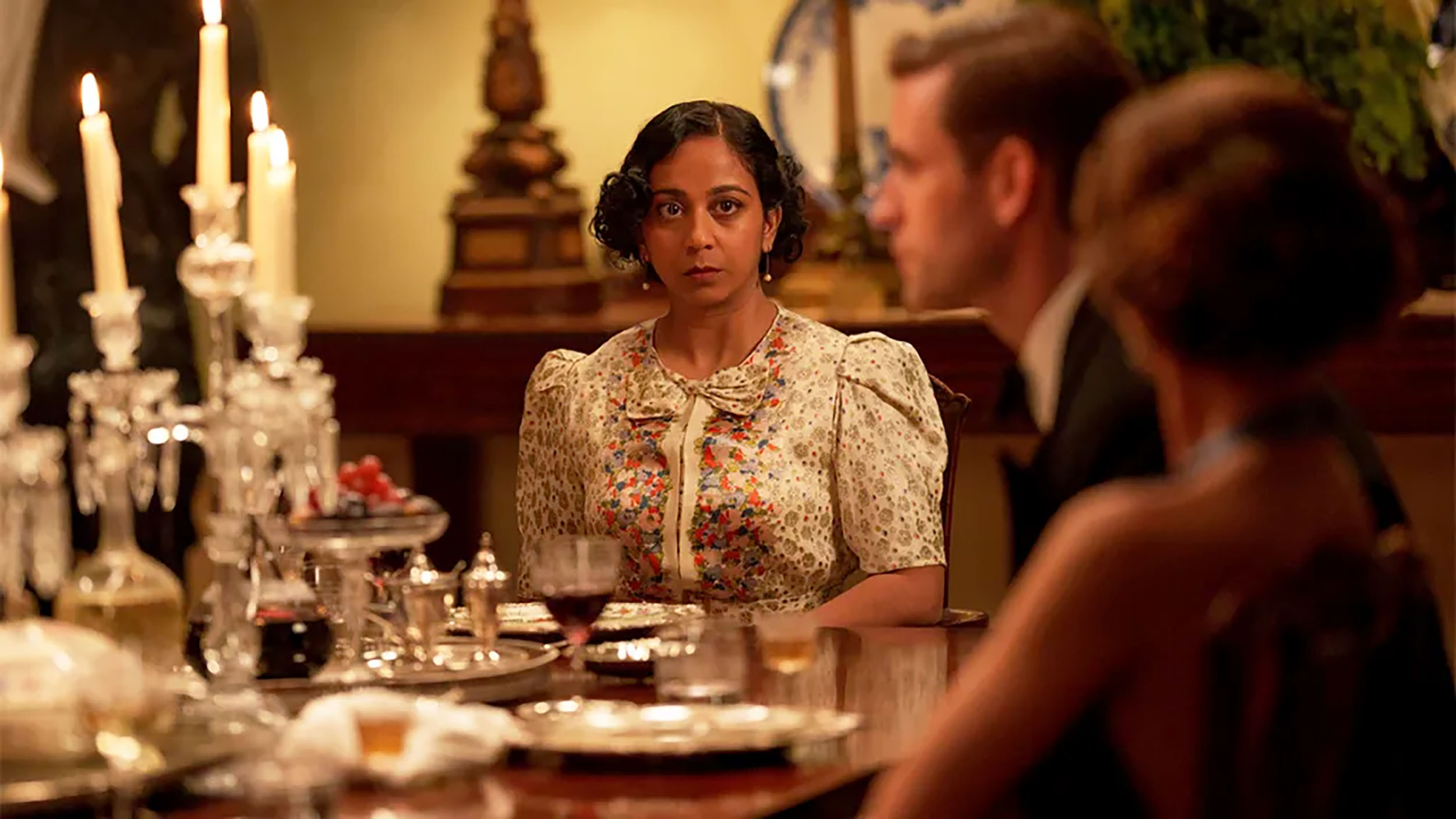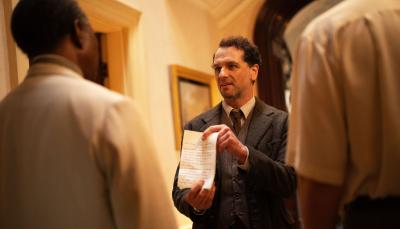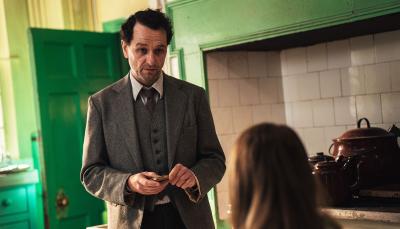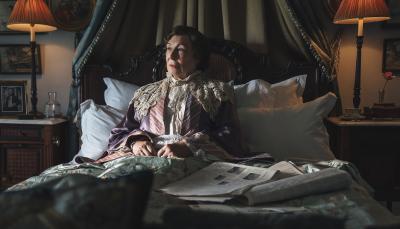The 'Toward Zero' Cast Mull the Series' Doubleback Twist Finale
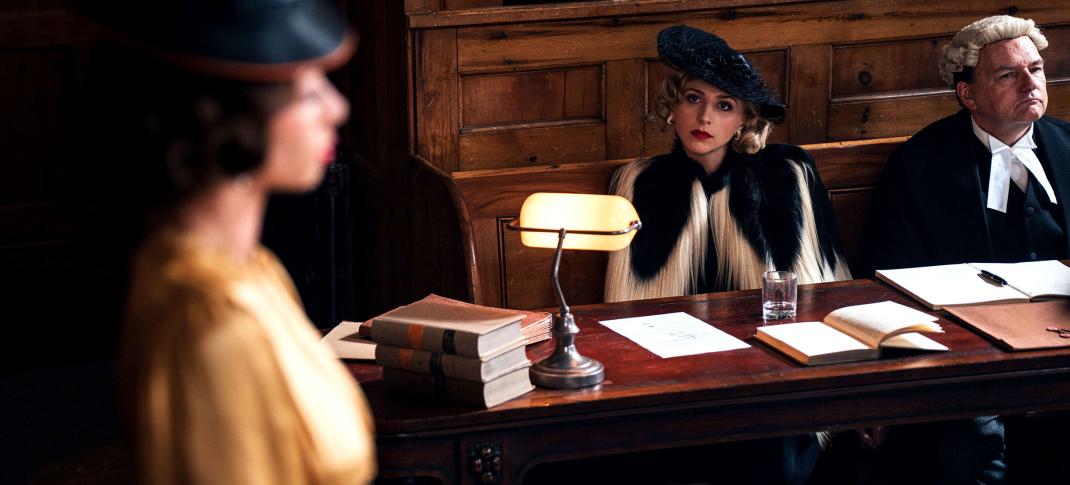
Mimi Keene as Kay Elliot and Ella Lily Hyland as Audrey Strange in 'Towards Zero'
BritBox
As is often the case in murder mysteries, a man behaved very badly and everyone in his proximity paid dearly. In the BBC and BritBox’s miniseries adaptation of Agatha Christie's Towards Zero, the collateral all told is two murders — Lady Tressilian (Anjelica Huston) and her estate barrister, Mr. Treves (Clarke Peters) — two marriages, a potential romance, and the placement of Treves’ now orphaned ward, Sylvia (Grace Doherty). (Plus, Neville’s own neck, but that’s entirely on him.)
In the finale episode of the miniseries, series writer Rachel Bennette (Mill on the Floss) and director Sam Yates (Vanya) retool the events in Christie’s book to stage a thrilling climax on the tennis lawn between well-matched foes, Matthew Rhys’ Inspector Leach and Oliver Jackson-Cohen’s Neville Strange. The two are observed by the rest of the murder suspects, including Neville’s ex wife Audrey (Ella Lily Hyland); his current estranged wife Kay (Mimi Keene) and her lover Louis (Khalil Ben Gharbia); Mary (Anjana Vasan); Thomas (Jack Farthing), and the newly revealed secret Tressilian bastard, Mac (Adam Hugill).
Telly Visions spoke with cast members Jackson-Cohen, Hyland, Vasan, and Keene about their thoughts on the fates of their characters after Inspector Leach lowers the justice boom down upon golden boy, Neville.
The following interview has been edited for length and clarity.
Telly Visions: How was it playing against Matthew Rhys in the final episode as his Inspector Leach comes into his faculties once more?
Oliver Jackson-Cohen: Watching him work, he has this incredible ability. I think what he does with Leach, the subtlety with which he deals with depression and mental illness, it's done with such incredible beauty. I was so kind of taken aback.
TV: What was it like to play such a meaty mental and physical sequence with him across that tennis green?
Jackson-Cohen: We got to put on a show for them. It was amazing. We shot it during a heat wave. Matthew was wearing a full wool suit in 95-degree weather, which was unbelievable. He had memorized pages and pages and pages of dialogue. Being able to bounce off him in that scene was incredible. It's these sort of two worlds coming at each other. We always called it "the showdown," and it is so quintessentially Christie. But hopefully, in a way that we all felt that the moment had to be earned. We had this showdown, and it didn't have to be like, “Fine! It was me. I did it."
TV: There’s also a brutal reckoning between Audrey and Neville that allows her to get free of him.
It was a lot of fun to play. Again, when these masks come off, you're left with these quite animalistic characters. There is an animalistic quality to Neville and to Audrey when the masks come off and the public persona is gone. There is a real childlike ferocity and vulnerability that they both feel. I love the moment — and it's sort of the reason why I wanted to do it, because I'm not interested in playing a villain again — but there was something about him in that showdown, especially with Audrey, that he was this lost boy that took something too far. He didn't realize how far he'd taken it, and it was too late.
Jackson-Cohen: There's a slight moment of realization of not guilt, but a feeling in him. He's not just this sociopath, like, "I don't care about my actions or consequences." But the betrayal he feels, or felt, with Audrey was so profound to him. And so much of his addiction to Audrey, and I guess to Tressilian, is about not having a mother figure in his life, so needing that. And then, without that, what is he? He's just this broken, lost boy, which I think is true for a lot of men, you know? There was something really interesting about it. I really loved that. And again, you never know whether or not this stuff translates, but going into it, that felt like a really exciting thing to get to play.
TV: Mimi, when Neville admits his guilt and is subsequently arrested, Kay leaves the estate with her old lover Louis but she looks entirely out of sorts and bereaved. Is this a happy ending for your character?
Mimi Keene: That scene, I remember shooting that and thinking, “Oh, God, I feel anxious for her.” If it was up to me, I'd want to leave. You know what I mean? I felt it more when I watched it as well because it's different when you're doing something to when you actually see the finished product. For me, that whole scene is just her feeling alone and feeling really worried. Say your life is a straight line? She's just gone on this little detour and then comes back around to where she was. But she's also a survivor. It's a crazy story.
Anjana Vasan: But under your hands, I feel like she's going to be okay. But you feel for her because she's gonna have to try another tactic.
Keene: Yeah, she's probably never had that sort of experience, being pushed down that much. She's taken a serious hit, basically, and she's ready to pick herself back up. I just think at that moment, she's like, “Am I meant to be here with this person? Does this person really love me?” It's an anxious scene. She's almost feeling so guilty because she's gone back with him. But I think more because there's not really any other choice, and that adds to it.
TV: Unlike the Mary in Christie’s book, there is a more detailed and hopeful ending for the character here. She has an inheritance and choices, and she doesn’t make any promises to Thomas.
Vasan: The ending I find so satisfying for Mary, because it would be too convenient and too fairy tale of an ending if Thomas and Mary just set off together right away, because they met under lies and deception. They both hurt each other during the process. I think they need to find each other again as equals, so I love the very modern take, which is very much like, “I will write to you...maybe. I have to find myself before I can find someone else.” And I think that's just a lovely thought, and it's a lovely ending for someone like her, who feels so trapped for most of the show. She is open to exploring who she is before she's open to someone else. That's very healthy life advice for anyone. I should take some of that advice for myself. You have to love yourself before you learn how to love someone else.
TV: Last but not least, Audrey got to stand up against Neville and get her say and a satisfying whack to his face. In the book, she soon marries Mac. In the miniseries, she and Mac commiserate, where Audrey profoundly defines her time with Neville as “starvation.” Talk about that moment of realization for her.
Ella Lily Hyland: Yeah, that's one of my favorite lines in the whole show. It really encapsulates their dynamic. It feels like Audrey's journey through the whole piece is like she goes to the depths and to the limits of this game that they're playing. It's almost like she goes to the underworld. And then she has this realization, which is incredible and it's also kind of sad. There's a kind of relief. It's like that feeling after you’ve had a big cry and you're exhausted. It's such a hard one…to describe that line. But I think there's a feeling to it. It's such an important line.
All episodes of Agatha Christie’s Towards Zero are available on BritBox.

